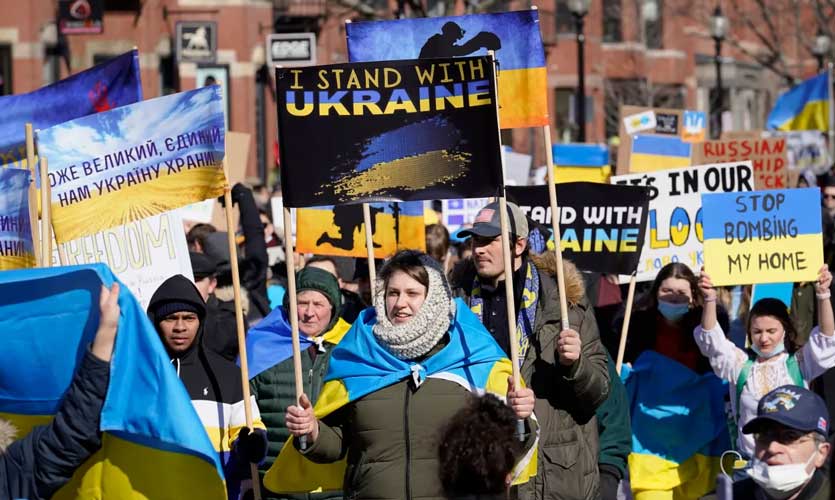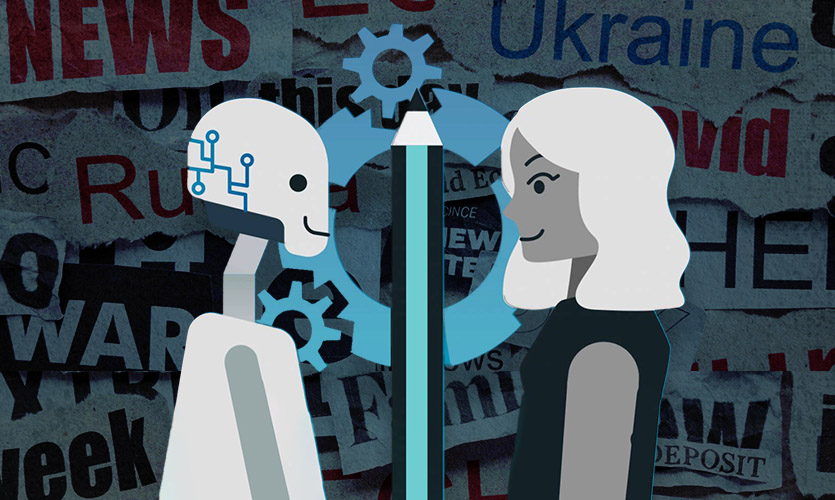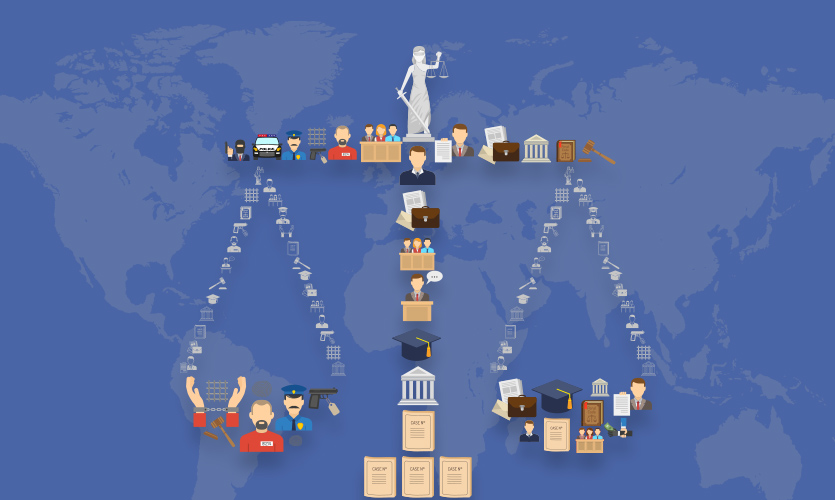The world watches in shock and horror as Russia wages war on Ukraine. Russian missiles are bombarding Ukrainian cities and blowing up residential buildings. Ukrainian soldiers are putting up a brave fight, refusing to surrender, even blowing themselves up to prevent the Russian advance. Caught in this horrendous war are civilians who are oscillating between defiance and uncertainty, courage and fear, hope and hopelessness. As Russian President Vladimir Putin rejects dialogue and other peaceful alternatives in favour of military action, it is the common people who pay the real price.
Since Russia started its offensive in the latter half of February, Ukraine has responded by banning men aged between 18 and 60 from leaving the country so that they can be conscripted in the army. This has led to a tragic situation where families fleeing have to leave behind their fathers, grandfathers and young sons. ITV writes of tears and heart-wrenching scenes as families are forced apart. As Russian forces close in, Vlad, a 28-year-old father, bids adieu to his wife and two little children as they leave Kyiv for Poland. The border between Poland and Ukraine is filled with women and children, desolate and fearful for the men they have left behind.
There are some residents who refuse to leave. Alicia Day is an American animal rights activist who lives in Dnipro, Ukraine’s fourth largest city. She tells the BBC that she will not abandon her many pets that she has rescued from slaughter houses.
There is Daria who lives in the UK. For a long time, she was uncertain about the war situation. She told The Mirror that she didn’t expect Ukraine to be attacked so soon and now she cannot fly to her home country to meet her parents and grandmother. Her grandmother has refused to flee her birth country despite Daria and her parents’ repeated requests. This has put the family in a desperate conundrum as Daria’s parents want to leave Ukraine as soon as possible.
As Russian missiles blow up apartments in Kyiv, residents are being forced to take shelters in subways and churches. Schools and shops have been shut down. Children don’t understand why their daily routine has been abruptly disrupted. The elderly, the sick and the disabled are stuck with no place to hide. Residents are running out of food, water and hope. Galina, a retired engineer told the New York Post, “I have food for maybe two more days, but what happens after that?” She says she is too old and her husband and her cannot make the arduous journey across the crowded borders. She says, “We elderly people, we are staying home. We don’t have anywhere to go.” At the most, they will go to a nearby bomb shelter when the need arises, which can be at any time.
But Galina’s anger is not just directed at Russia. Like many Ukrainians, she feels let down by the rest of the world. She calls out the American president for not living up to his promise to impose heavy sanctions on Russia. She says, “Where are the sanctions? Where is America? Where is Europe? Everyone forgot about us. People are dying.”
Other Ukrainians are putting up a brave face as they encounter Russian soldiers on Ukrainian soil. The Guardian reports how a Ukrainian woman confronted a heavily armed Russian soldier. She said to him, “You are occupants, you are fascists. Take these seeds and put them in your pockets so at least sunflowers will grow when you all lie down here.” There are also several videos of people standing or kneeling in front of advancing Russian tanks in scenes reminiscent of the famous Tiananmen square video. There is immense determination among many staying behind to protect and defend their homeland. They believe that they will be able to push back the Russian assault.
Vladimir Putin has silenced critics back home. The Russian political elite has poisoned their detractors, exiled political rivals and thrown protestors and reporters in jail. Many Russians have expressed their horror at Russia’s military action against Ukraine. However, no mass protest against Putin is tolerated in Russia and those who protest individually, risk jail time or worse. The Guardian has posted an article citing an anonymous Russian who writes, “Younger Russians condemn all violence against Ukraine. But protest is impossible: we feel like hostages in our own country.” Russian tennis player Andrey Rublev wrote “No War Please” on the lens of a television camera moments after advancing to the final at the Dubai Championships
Ethnic Russians living in Ukraine are also voicing their distress over the invasion, sometimes directly reprimanding the invading soldiers. A Guardian News video on YouTube shows an elderly ethnic Russian resident of Ukraine reprimanding Russian soldiers, asking them, “Don’t you have any problems in your own country?” He tells them he is living in Ukraine and they should also be content to remain in their own country. According to him, people live with many difficulties on both sides of the border, but that is no excuse to start a war. Another Sky News YouTube video shows Ukrainian civilians distributing government flyers with instructions on how to make Molotov cocktails. Many citizens, including ethnic Russians, can be seen making these improvised incendiary weapons. The reporter states how everyone wants to help defend their country and that among the ethnic Russians there is very little support for Putin and Russian anti-Putin slogans can frequently be heard.
Indian students and other foreigners stuck in Ukraine are rushing to the border areas to try and enter neighbouring Poland and Hungary as airports shut down. However, there they are met with chaos and long queues. The Week reports that this has led to panic among students. Ayushi Vishnoi, a student says, “We are in the age-group of 18-21 years. We came here just two months ago…We are not prepared to face this…We are worried, our parents are worried, we want to go back home, anyhow.” She stated that the Indian embassy has not issued an advisory and they have been left to fend for themselves.
In war, leaders plot but the people suffer. As Mahmoud Darwish, the great Palestinian poet, deeply familiar with the tragedies of war wrote, “The war will end. The leaders will shake hands. The old woman will keep waiting for her martyred son. That girl will wait for her beloved husband. And those children will wait for their heroic father.” Terms like ‘martyr’, ‘heroic’ and ‘hero’ lose their meaning and value in war where the ultimate price is paid by civilians caught in the midst of a conflict not of their making.
Read more: The British “Hangover”: Are We Still High On Imperialist Values?










